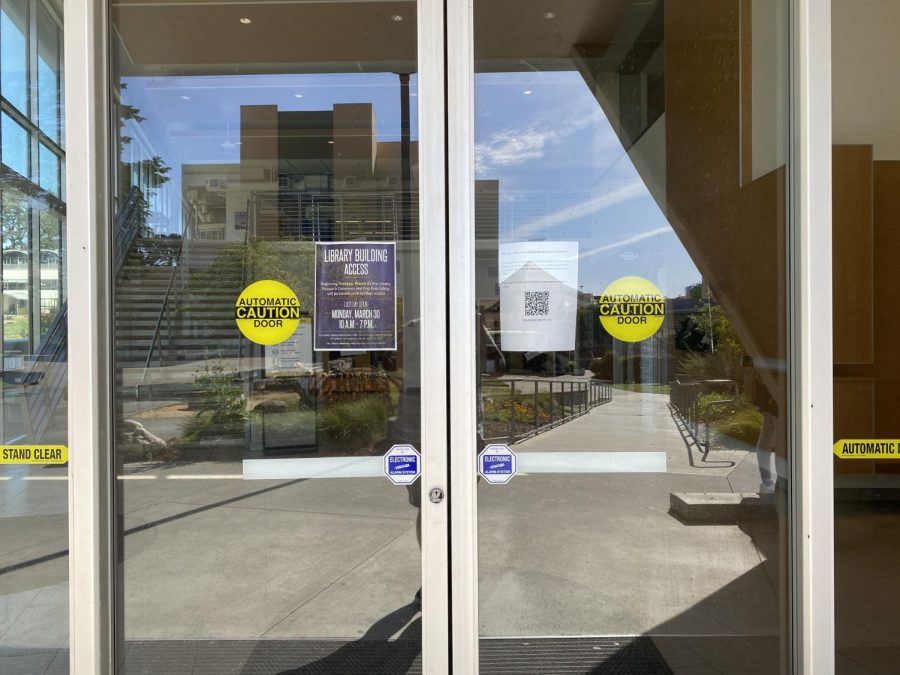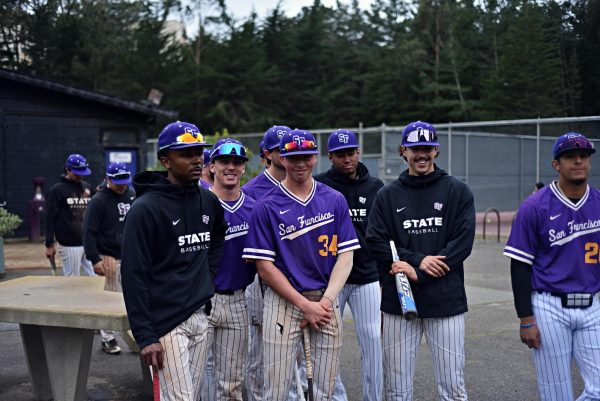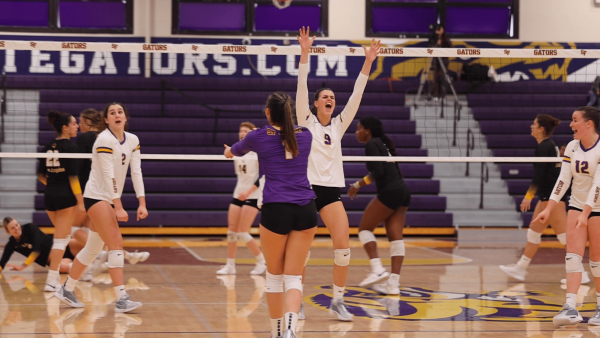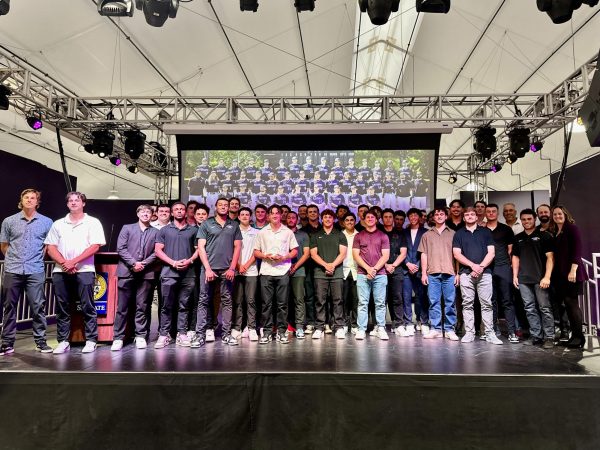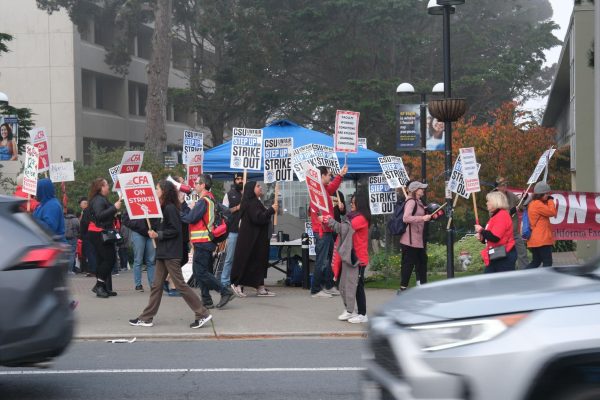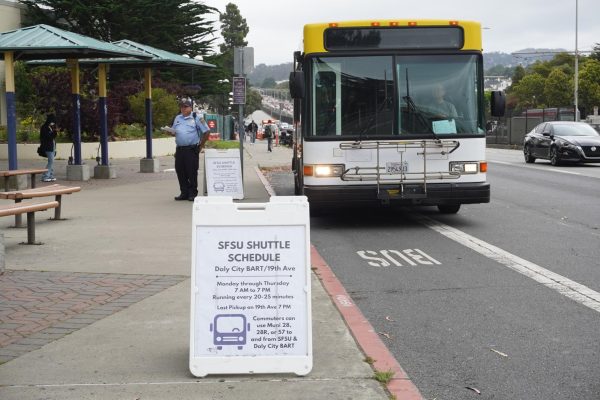Campus facility closures limit resource access through summer and fall
A sign on the door of the library stating indefinite closure of the building.
May 21, 2020
Typically at this point in a semester, the J. Paul Leonard Library would be operating for extended hours to accommodate students preparing for finals and finishing up coursework late into the night.
The library, Mashouf Wellness Center and most other buildings at SF State now sit vacant, with darkened interiors and window signs stating that the structures are closed indefinitely. The closure of campus facilities has left some people with limited or no access to internet, showers or other accommodations that they depend on as students.
At the beginning of the campus closure, the library offered loaner laptops to students who did not have access to computers off campus. As of this time, officials have stated on the loaner laptop information page that there are no more laptops available due to high demand.
With loaner laptop resources becoming scarce, the library has reached out to students who are currently borrowing computers in an attempt to retrieve them to checkout to others. There is also an option for students to renew their checkout if they are enrolled in summer courses, or to arrange for the laptop to be sent back via a prepaid package or set a time to return it to library staff in person. Library staff did not immediately respond to a request for comment on whether more laptops would be available soon.
Students without access to the internet at home are eligible to receive free service through providers such as Spectrum, which is offering 60 days of free service with equipment installation fees waived.
A statement on the homepage for Campus Recreation, which runs Mashouf, shared that, “in an effort for SF State to limit the possible exposure of COVID-19, Campus Recreation has canceled all extra-curricular programs including intramural sports, sport club activities, group-x classes, personal training sessions, massage therapy sessions, outdoor trips and special events,” indefinitely. Mashouf now holds group-x workout classes virtually over Zoom for existing members of Mashouf.
“I didn’t plan to not be able to use the gym,” said Denise Davila, a graduating senior that had been using Mashouf for daily workout routines. “Now I just do workouts on the floor of my room or go for runs when I can,” she continues.
According to Jewlee Gardner, the assistant director for Basic Needs Initiatives at Health Promotion and Wellness, use of the Mashouf locker rooms have been permitted during the campus closure for students that rely on the facility for basic hygiene needs. The locker rooms have remained open on Monday and Friday from 9:30 a.m. to 11:30 a.m., and 2:30 to 4:30 p.m. on Wednesday.
“We are still in the planning phases for summer and fall,” Gardner said, “but remain committed to ensuring students have meaningful access to basic needs services and resources. We hope to have summer/fall information up on the basic needs website by mid-June.”
A question lingering in the minds of students, some left jobless and struggling to pay bills in the wake of the coronavirus pandemic, is whether they will see some of their mandatory facility and student fees refunded.
The Mashouf Wellness Center, which students pay $169 per semester to access, shut its doors indefinitely on March 14. After this closure, a student created a petition on Change.org demanding the university partially refund student fees after access to facilities was limited. The petition, created by Swang Aung, received over 5,500 signatures, or roughly 20% of SF State’s student body.
“We are paying to utilize the campus resources and facilities and we cannot fulfill our educational needs solely through virtual instruction,” Aung shared on the page for the petition. “It is ultimately not the responsibility of SFSU students, who are mostly full-time students [or] low-income earners to bear the cost of the impact of the coronavirus on academic resources.”
SF State President Lynn Mahoney acknowledged in an interview with Xpress that there is a group reviewing refunds for some student fees on campus. “So what we’re looking at are fees that it’s that one on one, I paid this fee in exchange for this direct service. That’s housing, that’s parking, we’re looking at some of the course fees.” she said. However, when asked if students could see a refund for the money paid to access Mashouf, and Gator Pass, she simply responded, “No.”
Mahoney confirmed in an email last week that campus will continue to use virtual modalities through the summer and fall terms. This leaves disadvantaged students with limited access to resources through the remainder of the calendar year.



